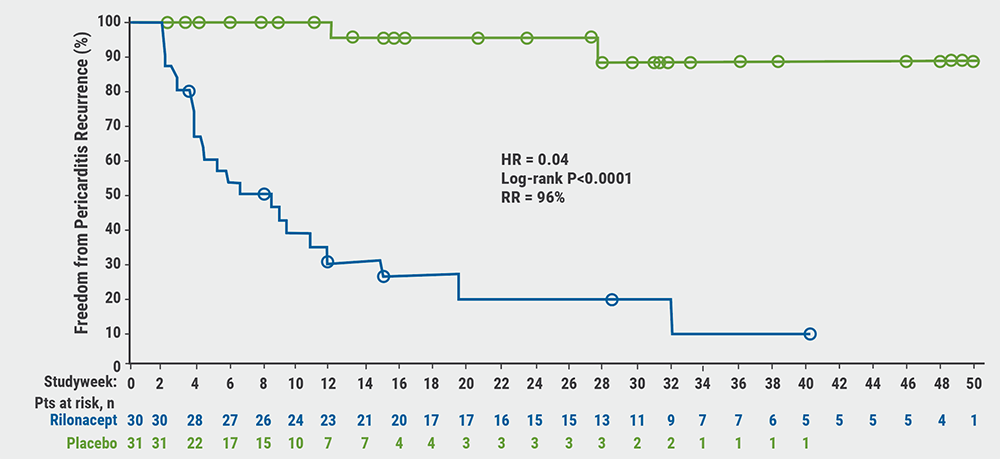Dr Are Kalstad (Oslo University Hospital, Norway) pointed out that elderly patients have a particularly increased CV risk after MI, even with secondary prevention; yet, this group is underrepresented in clinical trials. The hypothesis of the OMEMI trial (NCT01841944) was that supplementation with marine n-3 PUFA lowers the risk of CV events and total mortality in elderly patients with a recent MI during 2 years of follow-up. Participants were 70–82 years old and had an MI 2–8 weeks prior to inclusion. They were randomised to 1.8 g marine n-3 PUFA (Pikasol®: 930 mg EPA and 660 mg DHA) or placebo added to standard of care. The primary outcome was a composite of non-fatal MI, unscheduled revascularisation, stroke, hospitalisation for heart failure, or all-cause death. The primary safety outcome was major bleeding. The results were simultaneously published in Circulation [2].
Follow-up data for 1,014 patients were available for intention-to-treat analysis. Mean age was 74 years, and 29% were female. The primary endpoint occurred in 108 (21.4%) patients on n-3 PUFA and in 102 (20.0%) on placebo (HR 1.07; 95% CI 0.82–1.40; P=0.62). Consistent results were found for each component of the primary outcome and across key clinical subgroups. Findings were similar in a per-protocol analysis. There were 28 deaths in each group. There was no difference in risk of major bleeding: 54 (10.7%) and 56 (11.0%), respectively. An intention-to-treat analysis (n=759) of atrial fibrillation showed 28 (7.2%) and 15 (4.0%) new cases in the experimental and placebo group, respectively (HR 1.84; 95% CI 0.98–3.44; P=0.06). Self-reported adherence was good in both groups (87%), which was supported by changes in EPA and DHA.
- Kalstad AA, et al. Effects of N-3 Fatty Acid Supplements on Clinical Outcome After Myocardial Infarction in The Elderly: Results of the Omemi Trial. LBS.04, AHA Scientific Sessions 2020, 13–17 Nov.
- Kalstad AA, et al. Circulation. 2020 Nov 15. Doi: 10.1161/CIRCULATIONAHA.120.052209.
Posted on
Previous Article
« PIONEER III trial: Drug-eluting stents comparable Next Article
Survival of transplant-eligible newly diagnosed MM in FORTE trial »
« PIONEER III trial: Drug-eluting stents comparable Next Article
Survival of transplant-eligible newly diagnosed MM in FORTE trial »
Table of Contents: AHA 2020
Featured articles
COVID-19 and Influenza
Fewer CV complications than expected in AHA COVID-19 Registry
Worse COVID-19 outcomes in younger obese patients
Effects of CVD in hospitalised COVID-19 patients
Unfavourable outcomes for COVID-19 patients with AF and atrial flutter
High-dose influenza vaccine in patients with CVD
Atrial Fibrillation
Vitamin D or omega 3 fatty acids do not prevent AF
Active screening for AF improves clinical outcomes
AF screening in older adults at primary care visits
CVD Risk Reduction
Clever trial design gets patients back on statins: the SAMSON trial
Polypill plus aspirin reduces cardiovascular events
Lowering LDL cholesterol in older patients is beneficial
No CV benefit from omega 3 in high-risk patients
Safety and efficacy of inclisiran for hypercholesterolemia
Remote risk management programme effective and efficient
Healthy lifestyle lowers mortality irrespective of medication burden
Heart Failure
Omecamtiv mecarbil improves outcomes in HFrEF-patients
IV iron reduces HF hospitalisation
Dapagliflozin reduces renal risk independent of CV disease status
“Strongly consider an SGLT2-inhibitor in most T2DM patients”
Additional HFrEF education and patient-engagement tools
Acute Coronary Syndrome
No benefit from omega-3 fatty acids after recent MI
PIONEER III trial: Drug-eluting stents comparable
Coronary and Valve Disease
Extra imaging reveals cause of MINOCA in women
Ticagrelor not superior to clopidogrel after elective PCI
Stroke
Ticagrelor/aspirin reduces stroke risk in patients with ipsilateral cervicocranial plaque
AF monitoring following cardiovascular surgery
Miscellaneous
PAD: Rivaroxaban reduces VTE risk after revascularisation
Sotatercept: potential new treatment option for PAH
Finerenone lowers CV events in diabetic CKD patients
Mavacamten effective in obstructive hypertrophic cardiomyopathy
Children exposed to tobacco smoke have worse heart function as adults
Transgender people have unaddressed heart disease risks
Intensive blood pressure lowering benefits older adults
Longer chest compression pause worsens outcomes after paediatric IHCA
Related Articles

February 18, 2021
Rilonacept reduces risk of pericarditis recurrence
February 18, 2021
Omecamtiv mecarbil improves outcomes in HFrEF-patients
February 18, 2021
Transgender people have unaddressed heart disease risks
© 2024 Medicom Medical Publishers. All rights reserved. Terms and Conditions | Privacy Policy
HEAD OFFICE
Laarderhoogtweg 25
1101 EB Amsterdam
The Netherlands
T: +31 85 4012 560
E: publishers@medicom-publishers.com

